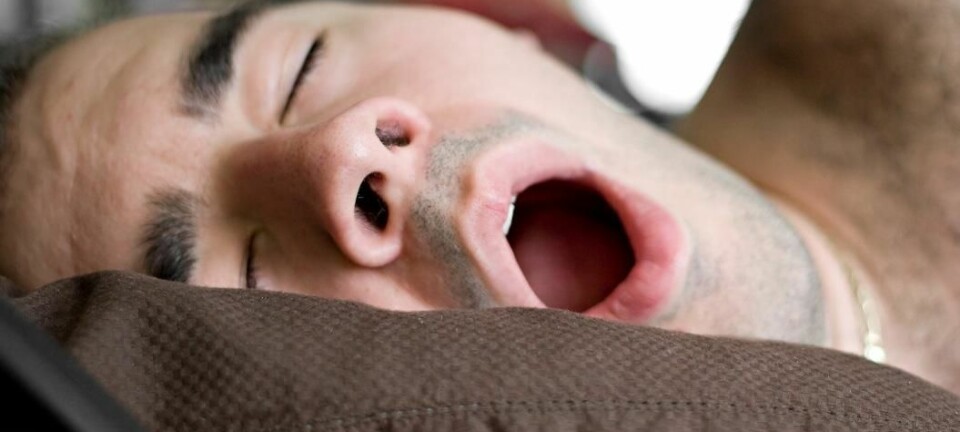
Local languange self-therapy on the internet can help deal with insomnia
A psychologist says her countrymen need Norwegian language self-help programmes on the web to deal with insomnia.
Denne artikkelen er over ti år gammel og kan inneholde utdatert informasjon.
“Self-therapy via the web can be a good place to start if you have sleep problems,” says a Børge Sivertsen, a psychologist and sleep researcher.
Sivertsen is head of the Department of Public Mental Health of the Norwegian Institute for Public Health in Bergen.
He has faith in web-based programmes that tailor individual schemes that not only reduce but also cure mild forms of insomnia.
Insomnia isn’t just a night or two of tossing and turning. It involves frequent and long-lasting problems falling asleep, waking up in the middle of the night and rising too early in the morning.
Hoping to get a Norwegian programme up and running

Norwegian insomniacs who are weak in English lack a scientifically based self-help programme on the internet. This could change in the wake of a new study that Sivertsen and colleagues are launching in 2014.
He and other University of Bergen researchers intend to create a Norwegian version of the American programme SHUTi (Sleep Healthy Using The Internet) and test it on 200 persons for a six-week spell.
If the results are good Sivertsen hopes to make the do-it-yourself therapy available to everyone in Norway who needs it.
Vital low threshold offer
Sivertsen thinks low threshold offers like this are vital to establishing sufficient treatment for sleep disorders in a long, sparsely populated country like Norway.
“A problem in Norway is that we neither have enough specialists or clinics that can provide cognitive behavioural therapy to everyone who is plagued by sleep disorders.”
The population is spread thinly throughout the country, which is divded by mountains and fjords. The closest therapist may be hours away.
“The self-help programme on the web can be accessed by anyone with an internet connection. So it’s a form of treatment which can really reach out to the public,” he says, but points out that self-therapy on the internet is mainly meant to be a low threshold provision for those with milder problems.
"The most serious sleep disorders will have to be treated by a therapist in any case,” stresses Sivertsen.
Used for anxiety and depression
The Bergen Health Region already has a project called eMeistring which provides self-help programmes on the web as tools for dealing with health problems such as anxiety and depression.
Sivertsen says in recent years mounting documentation has shown that people with sleep problems can fairly often make progress on their own.
“The results of two pilot studies in Sweden and the USA are promising. Simply stated, the techniques involve establishing good sleep routines.”
“This can be rather difficult, so it would be good to get some encouragement and support from family or friends, at least to start with,” says Sivertsen.
Longer unbroken sleep
An American study of the effect of self-therapy for insomnia was published in JAMA Psychiatry in 2009. It showed that self-help in the form of a structured behavioural programme can have a good effect against insomnia.
“Insomniacs often wake up at night. The self-help scheme starts by getting participants to go to bed late and get up early,” says Sivertsen. The aim is to compress the time slot for sleeping to get more continual, undisturbed sleep.
“A person spends fewer hours in bed initially and that can be tough. This means support from family and friends can be very useful in the first phase. After a while most people will feel better as the amount of sleep and unbroken sleep increases,” says Sivertsen.
Like conversational therapy
The study will make use of two groups. One will use the self-help scheme and the other will be advised on sleep hygiene.
The Norwegian version of the SHUTi website asserts that the programme entails the same type of help normally given by a psychologist or a sleep specialist in conversational therapy. It will also be a pioneer effort in another sense – the American version of SHUTi is not currently open to the general public.
Translated by: Glenn Ostling


































